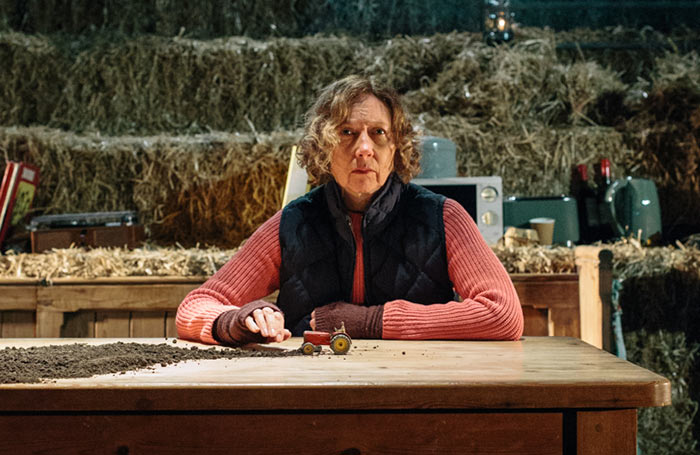Black Sheep by curious directive: tender drama about farming

The Realities of Modern Farming Life: A Review of “Black Sheep”
Amanda Hadingue’s performance in “Black Sheep” at Shoreditch Town Hall offers a poignant glimpse into the often-overlooked world of contemporary farming. The production presents a bittersweet portrayal of rural life, exploring the challenges and complexities faced by those who work the land in today’s rapidly changing agricultural landscape. Through nuanced storytelling and compelling performances, the play manages to humanize the struggles of farming communities while avoiding romanticizing the harsh realities they face.
At its core, “Black Sheep” delves into the tensions between traditional farming practices and modern agricultural demands. The narrative follows characters navigating financial pressures, climate change impacts, and the isolation that can come with rural living. These themes resonate particularly strongly in our current context, where family farms increasingly struggle to compete with industrial agriculture while simultaneously facing environmental challenges. Hadingue’s performance stands out for its authenticity, bringing depth to her character’s conflicted relationship with farming heritage and the difficult decisions that must be made to survive in an industry that offers little forgiveness for sentimentality.
The production’s staging at Shoreditch Town Hall creates an interesting juxtaposition – bringing rural stories into an urban setting, perhaps highlighting the disconnect between these worlds. The creative team skillfully transforms the space to evoke the essence of farm life without relying on literal representations. Instead, they use minimalist design elements that suggest the vastness of farmland while maintaining an intimate atmosphere that draws the audience into the characters’ personal struggles. This approach allows urban audiences to connect with rural experiences that might otherwise feel distant or unfamiliar, bridging cultural divides through shared human emotions.
What makes “Black Sheep” particularly effective is its refusal to present farming life through either a purely nostalgic or entirely pessimistic lens. The play acknowledges the beauty and value of agricultural traditions while honestly depicting the harsh economic realities and backbreaking labor involved. Characters wrestle with competing forces: attachment to family legacy versus financial viability, environmental stewardship versus production demands, community ties versus the pull toward urban opportunities. These tensions create a rich dramatic landscape that mirrors the complex decisions facing real farming communities throughout the country, lending the production authenticity that resonates beyond the theater walls.
The play also explores the concept of being the “black sheep” – both literally in terms of livestock breeding and metaphorically regarding family dynamics and community belonging. This multilayered approach allows for exploration of deeper themes about identity, inheritance, and the price of breaking from tradition. Through carefully crafted dialogue and emotional depth, the production raises important questions about sustainability – not just environmental but also personal and social. What sacrifices are worth making to preserve a way of life? Who bears the cost when agricultural systems change? These questions linger with the audience long after the performance ends.
“Black Sheep” ultimately succeeds by treating its subject matter with respect while avoiding sentimentality. It presents farming not as a picturesque lifestyle nor as a dying relic, but as a complex human endeavor filled with contradictions, challenges, and occasional moments of transcendence. For urban theatergoers, the production offers insight into a vital part of our food system often rendered invisible. For those with connections to agricultural communities, it validates experiences rarely seen on stage. Through Hadingue’s compelling performance and thoughtful production choices, “Black Sheep” makes a meaningful contribution to theatrical representations of rural life while engaging audiences in important conversations about the future of farming in contemporary society.








